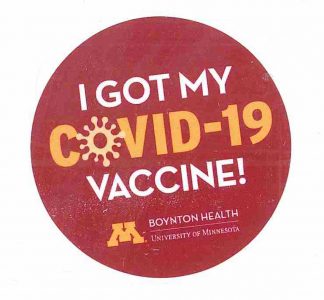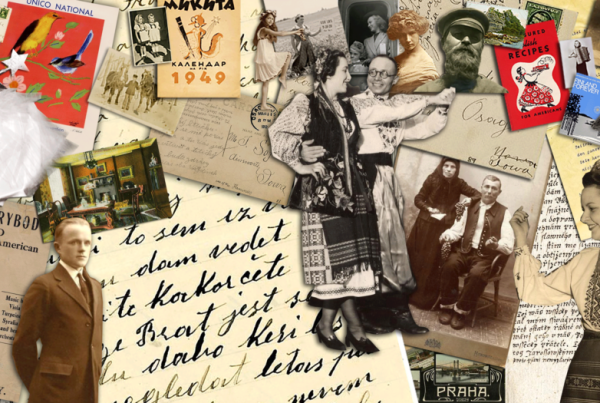By Allison Campbell-Jensen
 Collecting materials about the University’s response to COVID is not only important, “it’s critical,” says Professor Michael T. Osterholm, Director of the Center for Infectious Disease Research and Policy (CIDRAP) at the University of Minnesota.
Collecting materials about the University’s response to COVID is not only important, “it’s critical,” says Professor Michael T. Osterholm, Director of the Center for Infectious Disease Research and Policy (CIDRAP) at the University of Minnesota.
“If we are not to repeat ourselves, we best learn from this information,” says Osterholm, who credits University of Minnesota Archives for creating the U’s COVID-19 collection.
That’s high praise for the work of University Archivist Erik Moore and his team from Osterholm — an infectious-disease expert, best-selling author, frequent news source, and member of then President-elect Joe Biden’s Transition COVID-19 Advisory Board.
Materials include web crawls, emails from U leadership, and more
“If we are not to repeat ourselves, we best learn from this information.”
—Professor Michael T. Osterholm
And there are plenty of materials to learn from. The COVID-19 web archives, Moore says, “are incredibly robust and detailed.” And, according to Moore, the Internet Archive (a free digital library with millions of items) considers ours to be the first COVID-specific web collection created by a university in North America.
In addition, through the U Archives team’s efforts with electronic records, Moore notes, “we are capturing the email communications from senior leadership, [University] Senate minutes and discussions, and sunrise planning documents.” Epidemiologists, other public health practitioners, U leadership, and people outside the University will benefit from this archive, Osterholm says.
“This is a snapshot into life right now,” Osterholm adds. “There will be a lot of Ph.D. theses written out of this.”
Emergency meal kit was first item preserved
Some of the items preserved are very practical, like the Extension pamphlet on stocking a pantry for two weeks of quarantine using items found in rural grocery stores. Kathryn Draeger is the statewide director for Extension’s Regional Sustainable Development Partnerships and the lead author of the pamphlet. That was the first piece placed in the University Digital Conservancy about COVID, Moore notes. It was downloaded 3,667 times in the first two weeks it was available.
The U Archives team also collects daily web crawls from the Minnesota Daily student newspaper, Moore says, “as well as preserving the many podcasts that focus on COVID, including Michael Osterholm’s podcast updates.” (Episodes from Osterholm’s podcast are stored in the University Digital Conservancy and also available through CIDRAP.)
Osterholm reflects on a recent history of HIV/AIDS in Minnesota for which the author drew upon local archives — “I saw the value of that: It was immense” — and appreciates the efforts of the University Archives team in collecting COVID-related materials.
But the pandemic is not yet over, Osterholm says. “Even with the delta thing, we had a lot of people say, ‘We’re done with the pandemic.’ I’ve been saying, “No, we’re not done with this pandemic; there’s a lot left to go.’” For all of us, including the Archives.





From the beginning I’ve believed and said that people not vaccinated should be isolated from those that have been vaccinated. The idea of personal freedom does not allow people to put others in harms way. If people do not learn from history than they will be part of repeating it such as the Spanish flu at the beginning of the last century. The government has a responsibility to keep order in society and the public health is part of the order they are charged with to keep us from disease. Look at small pox, polio, diphtheria & tetanus and most people got vaccinated for them so what is the issue with this vaccination ? Use your head for something other than a hat rack & JUST DO IT ( NIKE ). The vaccination just might save your life.